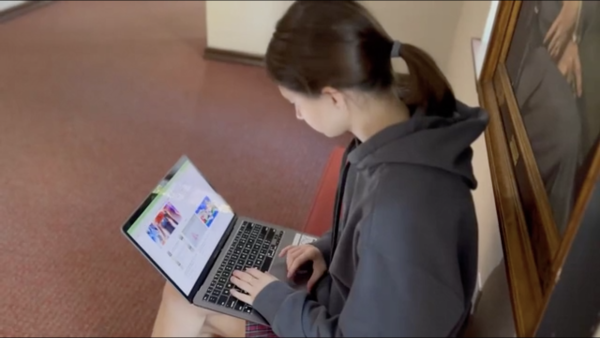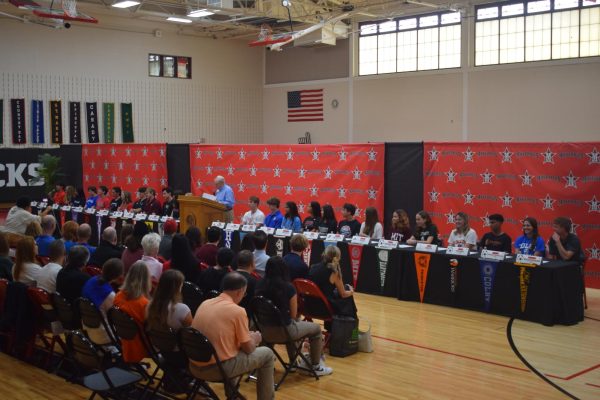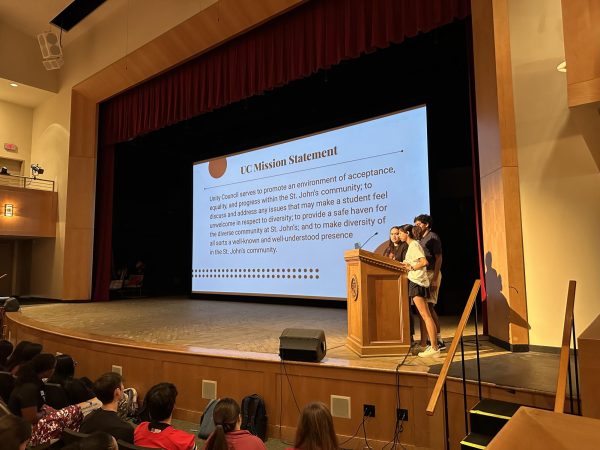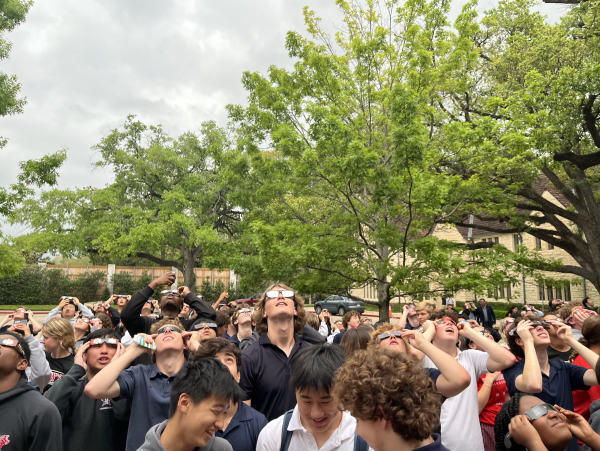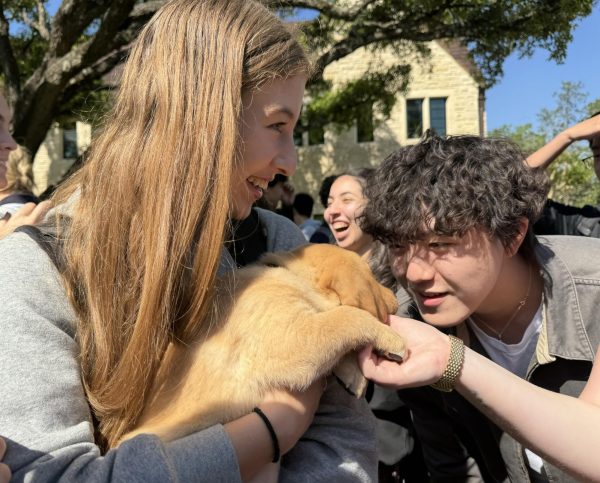Hurricane Nicholas moves across Houston, causes school closures, power outages
The rain began on Sept. 13, early in the morning. By that evening, students were already finding downed trees, fences and power lines outside of their homes. On Sept. 14 at 12:30 a.m., Category 1 Hurricane Nicholas landed on the Gulf Coast. Harris County, as well as 16 other districts in Texas, went into a state of emergency.
Shortly after making landfall, Nicholas was downgraded from a hurricane to a tropical storm. It has caused power outages throughout the coast and is projected to head east into Louisiana, Mississippi and Southern Alabama by the afternoon of Sept. 16.
St. John’s planned to hold virtual classes on Sept. 14, but because many students and the campus itself lost power, classes were canceled at 8 a.m., only 30 minutes before the school day began.
The Class 7 parents’ meeting and Lower School parents’ night were also scheduled for Sept. 14 but delayed due to the storm. The Lower School parents’ night was moved to Sept. 17.
On Sept. 14, Head of School Dan Alig went on campus to assess the hurricane’s damage. The school has some debris, but his main concern is a downed power line that feeds the Lower School campus and the Smith Student Athletic Center.
“We are trying to send [school news] in a timely manner, with as much information as possible,” Alig said.
A day off campus is already affecting students. The fall play, “Much Ado About Nothing,” is on an expedited schedule, with actors expected to be off-book by Sept. 25. The first performance date is Oct. 14, less than a month away. With the hurricane interrupting two critical rehearsals, actors are scrambling to learn the rest of the play.
“It’s definitely stressful, considering how fast rehearsals usually go,” junior Noelle Alexander said, “but I’m more disappointed than I am stressed; rehearsal is the best part of my day.”
This isn’t our first rodeo.
— Dan Alig
Many students reserved tickets to a Sept. 13 Harry Styles concert, which has been postponed indefinitely.
“I had been looking forward to the concert for so long,” sophomore Lily Veazey said, “but Harry made the right decision to prioritize our safety. I will be looking forward to the show if it is rescheduled.”
Hundreds of flights have been delayed or canceled because of the storm. The day before Nicholas hit, sophomore Cora West’s father flew to Wisconsin to pick up their newly-adopted puppy as the storm approached.
“It’s a miracle that he was able to make it out of Houston,” West said. “My dad described the plane as rocking back and forth, like a ship in the ocean.”
While planned curriculum may be shortened and tests in classes like Biology, Chemistry and Spanish III have been pushed back, Upper School history teacher Derrick Angermeier remains confident that teachers will still be able to provide a high-quality education while dealing with the aftermath of the storm.
“When the history department created this year’s schedule, we planned for something like this to happen,” Angermeier said. “We’ll have to complete additional lessons in fewer classes, but most of the faculty feel confident in their ability to adapt.”
Some areas of Houston saw six inches of rain from the storm. Galveston reported 14 inches. Southeastern Texas and its border with Louisiana will likely be hit hardest by floods, so thousands of coast guard officers have closed in on the Gulf Coast.
2021 has been the deadliest flooding year in the US since 2017, which saw Hurricane Harvey kill over 70 Texans. The average annual number of nationwide deaths during floods is 85. Only nine months into this year, 116 have died.
According to CenterPoint Energy, Houstonian power outages peaked at over 450,000 reports, but as of 5 p.m., the number decreased to around 146,000. Alig remains optimistic that campus life will return to normal soon as he and administration formulate plans for the School’s immediate future.
“Most of us have experienced hurricanes before,” he said. “This isn’t our first rodeo.”

Annie Jones ('24) joined The Review in 2020 as a freshman. She has four younger siblings and considers herself the wunderkind of shenaniganery.

Penelope Mcpherson ('24) joined The Review in 2020 as a freshman. Her favorite author is Agatha Christie, and she loves raspberry-lime Sprindrift...

Ella is a senior in her fourth year on Review. Her dream is to go skydiving, and she's addicted to Honey Nut Cheerios.

Lydia ('23) joined The Review in 2019 as a freshman. She staged a coup on the Dungeons & Dragons Club in 2021 and is now its ruthless dictator....

Jennifer Liu ('25) joined The Review in 2021 as a freshman. She likes to change her Spotify playlist covers once a month and prefers horror movie plot...







